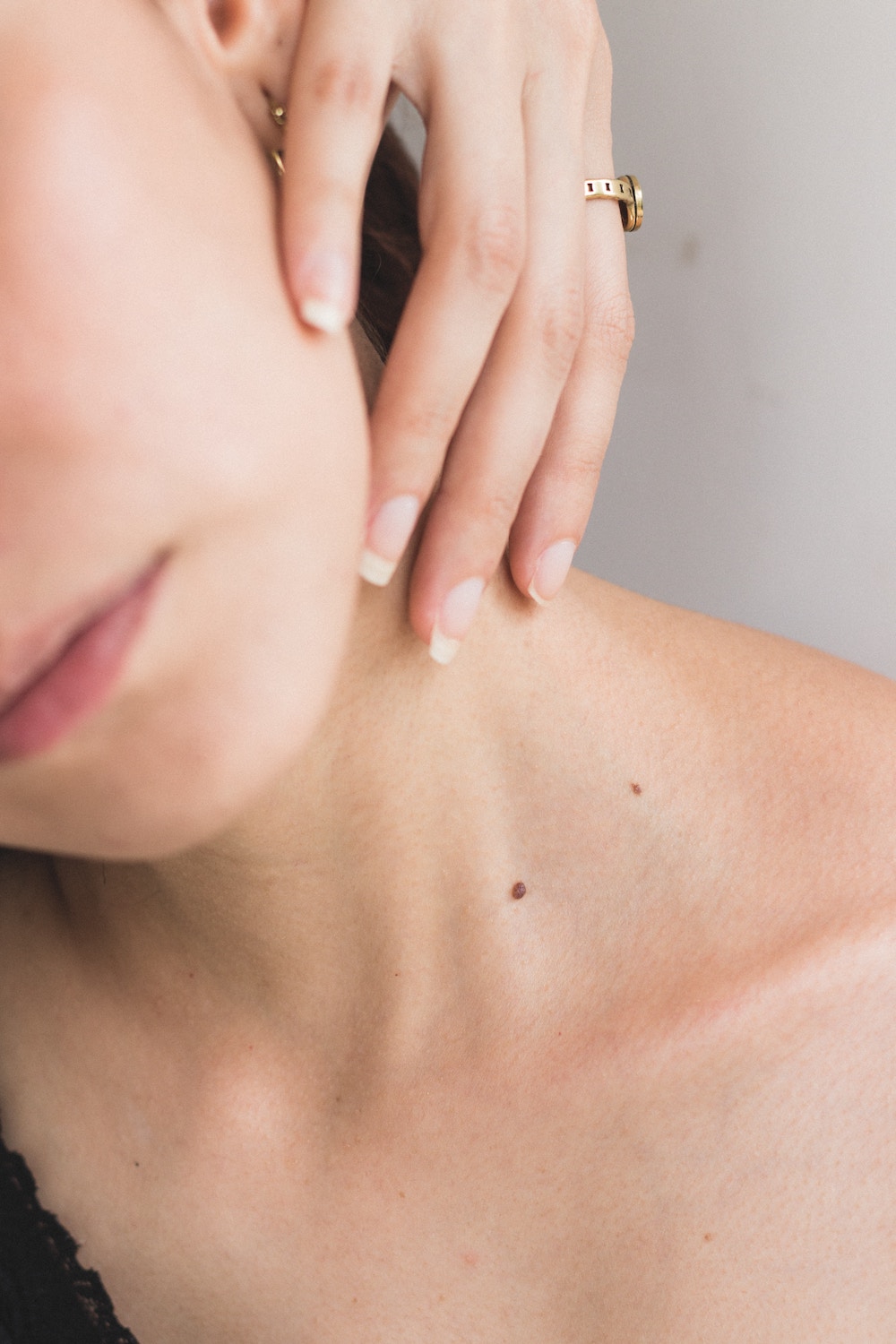I was a bit hesitant to try natural deodorant—I figured that while it might be better for my skin, it wasn’t going to be as effective. Admittedly, the first natural deodorant I tested out wasn’t quite as good as the brands I used to use, and testing out a homemade version yielded the same disappointing results. But after trying Schmidt’s Bergamot and Lime and using it throughout the summer, I was pretty excited—it worked really well, and it smelled great. The ingredients list did mention baking soda, and although I had read that baking soda can be too harsh for some people’s skin, I didn’t seem to have any adverse reactions.
Imagine my surprise when I went to hop in the shower a couple of weeks ago and noticed an ugly rash spreading under my arm. I was confused—I hadn’t tried any new products recently, and as far as I knew, Schmidt’s hadn’t changed their formula. I wondered if the baking soda could have something to do with it after all.

I decided to do a little digging. Baking soda is used in natural deodorants because it absorbs moisture, and it also inhibits bacteria. So it does double duty: it keeps you from feeling too sticky and sweaty on a hot day, and it keeps you from smelling, too. While it’s tough to find research about the specific effects of baking soda in deodorant, there are plenty of dermatologists who warn against using it on your face because it’s too basic, while your skin is slightly acidic. This is what causes the redness and irritation.
Underarm skin is also quite sensitive, so it makes perfect sense that applying baking soda to this area could be a bad idea. As it turns out, it’s entirely possible that I went for quite a while without reacting to the baking soda in my deodorant. But with enough applications, it eventually began to irritate my skin, which causes contact dermatitis—the technical term for the rash I had. It wasn’t particularly painful, but it did itch, and the area did feel a bit tender and sore.
The good news? Schmidt’s does make a baking-soda-free version of their natural deodorant, so I don’t have to ditch my holy-grail product. And if you prefer to make your own DIY deodorant, you can swap out baking soda for arrowroot powder in most recipes, and the end result will be similar. If you’re dealing with contact dermatitis from a skincare product, stop using the product, don’t shave the area, and keep it clean. You can find soothing creams at the drugstore to help stop the itch and clear up the rash more quickly.
Talking about armpit rashes is definitely not the most glamorous topic—in fact, it’s a little embarrassing to write about. But there’s a misconception that anything marketed as “natural” is better for you, and that natural ingredients won’t have any nasty side effects. I know that when I started making the switch to “natural” products, I went into it with the assumption that pretty much anything labeled “natural” with a few organic ingredients would be gentle on my skin, unlike many conventional products. I’ve always had very sensitive skin and struggled to find products that really worked for me without causing redness, irritation, breakouts, and other unwanted results. However, it’s important to remember that natural skincare products can still be highly irritating, and although an uncomfortable rash certainly isn’t a major medical issue, I should’ve taken the time to find a product with gentler ingredients in the first place.
For example, essential oils can be effective spot treatments, but they can also cause chemical burns. Apple cider vinegar can be a great conditioning rinse for your hair, and some even swear by using it as a toner, but because of its high acidity, using too much can seriously dry out your skin and leave you looking sunburned. And while coconut oil might be a soothing moisturizer for your body, putting it on your face can easily clog your pores and cause serious breakouts. These are just a few examples of natural ingredients that many people will swear by, while others might not be able to handle them.
To sum it all up, I’ve learned my lesson about being careful with whatever I put on my skin. If there’s an ingredient that’s likely to irritate sensitive skin, I’m personally better off just avoiding it in the first place rather than using a product that includes it on a daily basis. Moral of the story? If you have sensitive skin like me, you might have to look beyond the all-natural labels and be a little more picky about your product selection.
Also by Jane: Winter Acne Is Surprisingly Common As The Weather Cools. Here’s How To Clear It Up
Burning Sage To Cleanse Your Space? Why You May Want To Think Twice
Get more like this—Subscribe to our daily inspirational newsletter for exclusive content!
__
Photo: Unsplash




